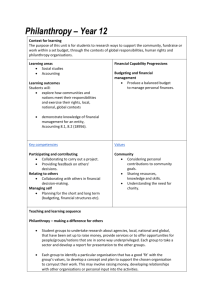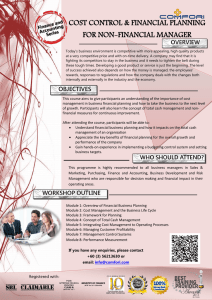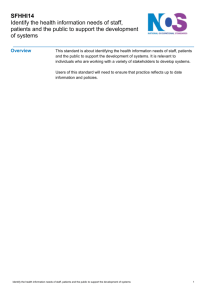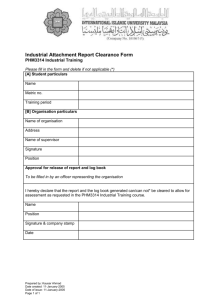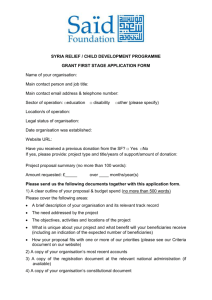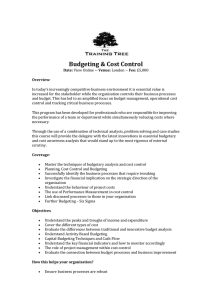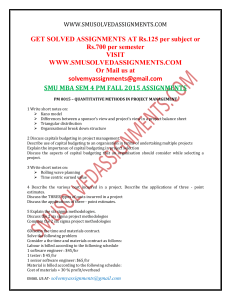Finance for non-financial Managers – Overview
advertisement
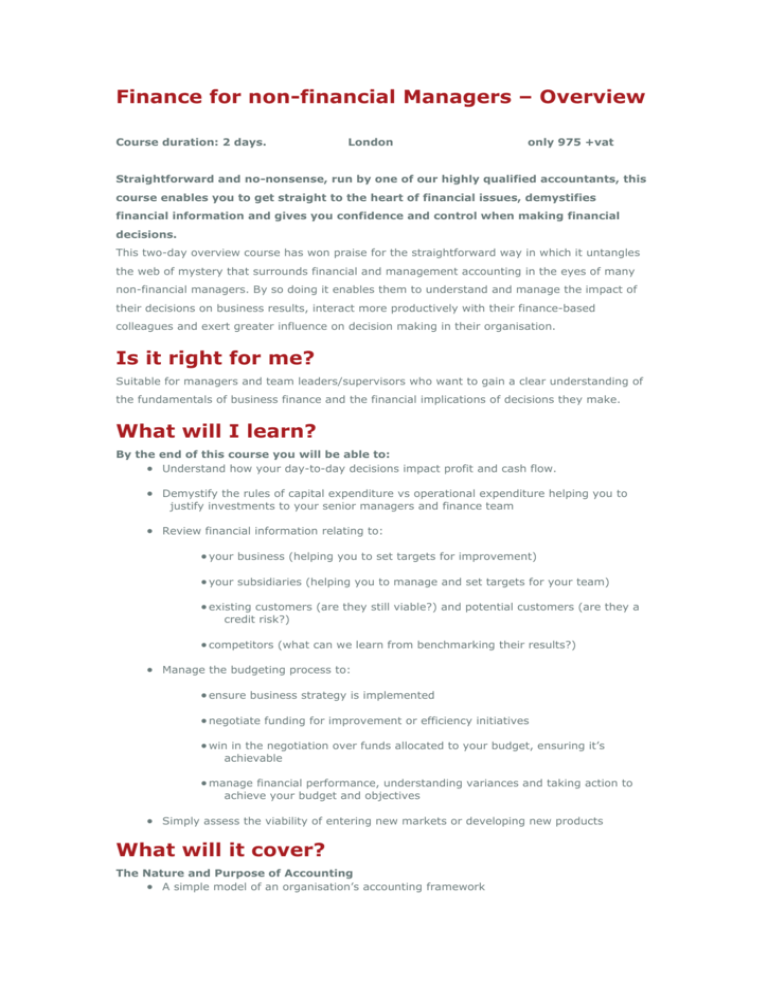
Finance for non-financial Managers – Overview Course duration: 2 days. London only 975 +vat Straightforward and no-nonsense, run by one of our highly qualified accountants, this course enables you to get straight to the heart of financial issues, demystifies financial information and gives you confidence and control when making financial decisions. This two-day overview course has won praise for the straightforward way in which it untangles the web of mystery that surrounds financial and management accounting in the eyes of many non-financial managers. By so doing it enables them to understand and manage the impact of their decisions on business results, interact more productively with their finance-based colleagues and exert greater influence on decision making in their organisation. Is it right for me? Suitable for managers and team leaders/supervisors who want to gain a clear understanding of the fundamentals of business finance and the financial implications of decisions they make. What will I learn? By the end of this course you will be able to: Understand how your day-to-day decisions impact profit and cash flow. Demystify the rules of capital expenditure vs operational expenditure helping you to justify investments to your senior managers and finance team Review financial information relating to: your business (helping you to set targets for improvement) your subsidiaries (helping you to manage and set targets for your team) existing customers (are they still viable?) and potential customers (are they a credit risk?) competitors (what can we learn from benchmarking their results?) Manage the budgeting process to: ensure business strategy is implemented negotiate funding for improvement or efficiency initiatives win in the negotiation over funds allocated to your budget, ensuring it’s achievable manage financial performance, understanding variances and taking action to achieve your budget and objectives Simply assess the viability of entering new markets or developing new products What will it cover? The Nature and Purpose of Accounting A simple model of an organisation’s accounting framework Who uses the accounts and what do they use them for? Where can I find out about my organisation’s/my competitors’ financial position Profit and Loss Accounts, Balance Sheets and Cash Flow Statements Their structure and terminology, what they tell us and why they need to be reviewed together to gain a full understanding of business performance Using financial information as a management tool Understanding how operational income and costs are accounted for and the implications for how you manage costs in your department Managing Finance Understanding working capital: What it is? How can we manage it? Why too much working capital is bad for you and too little may be disastrous Optimising working capital for your organisation and the implications for negotiating with customers and suppliers The distinction between profit and cash flow Considering sources of funding Understanding Management Accounting Including Budgeting Putting together a robust budget Negotiating budget funding Assessing variances and reforecasting the budget Evaluating feasibility of operational projects via break-even analysis The effects of depreciation Personal Development Formulating an action plan

